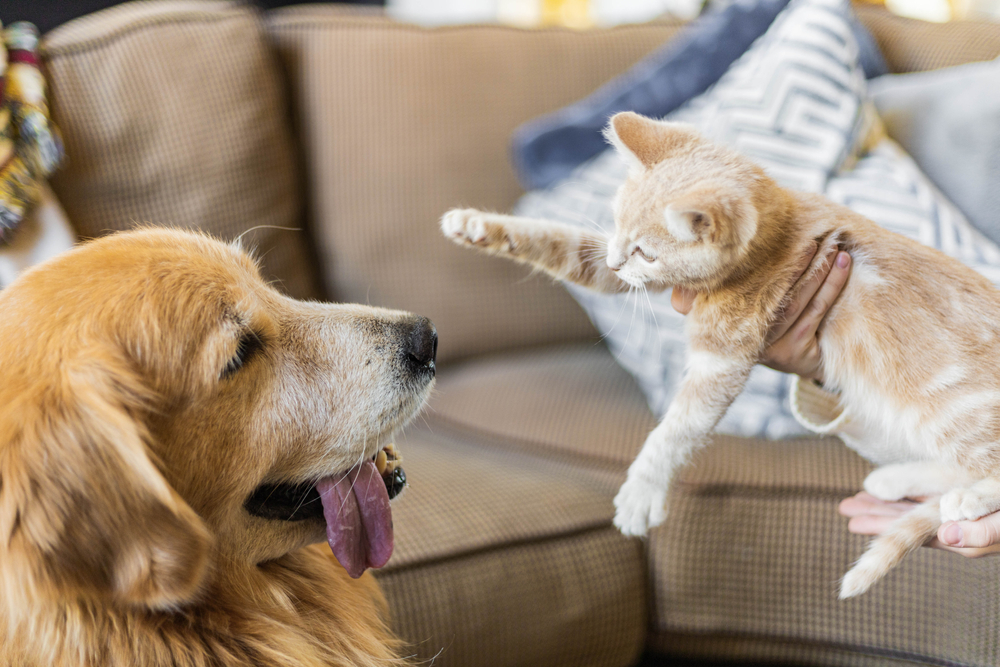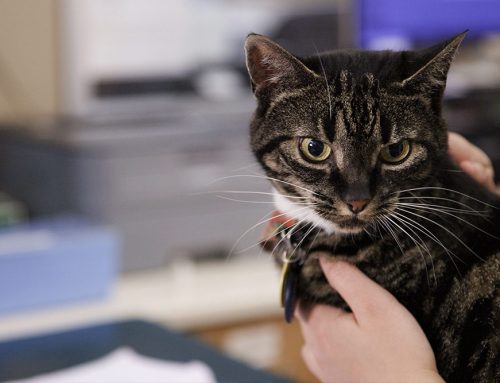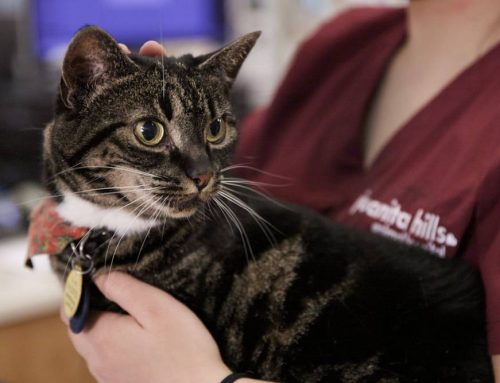Kittens have boundless energy, creating a fun, playful atmosphere, but they can also be a lot of work. When you first bring home your new kitten, you have to integrate them into your home. You then have to ensure they receive veterinary care, socialization, exercise, nutrition, and love. Understanding every kitten and cat care detail can be overwhelming, so our Roosevelt Animal Hospital team created this handy guide. Learn everything you need to know about bringing home your new kitten.
Preparing your home for your kitten’s arrival
Before bringing home your kitten, you’ll need to purchase supplies, set up a small living area separate from other pets, and kitten-proof. Within their separate living space, your tiny whiskered pal will need the following supplies:
- Food and water bowls
- High-quality kitten food
- Low-sided litter box
- Scratching post or cat tree
- Comfy bedding
- Toys
- Grooming supplies
- Collar and identification (ID) tag
To kitten-proof your home, first focus on the smaller area where your kitten will initially stay, then work on the rest of the house. Remove all breakables and cover electrical cords your small feline friend could chew. Everything is a toy to a kitten, but they could potentially swallow small objects such as hair ties, ribbons, or rubber bands, which can cause intestinal obstruction. Keep your kitten’s immediate area clear except for their own belongings, and supervise them closely while at play.
Introducing your kitten to your home
The key to successful introductions is to progress gradually and work at a pace that is comfortable for everyone. If your kitten is your only household pet, your job is much easier. Once your tiny whiskered pal is reliably using their litter box and seems comfortable in the initial area, you can begin introducing them gradually to more rooms until they have free roam of the house. As your kitten’s territory grows, ensure you add litter boxes—at least one per house level—and extra beds, scratching posts, and water bowls so they always have resources nearby.
To introduce your kitten to other pets, place each pet on opposite sides of a baby gate, so they can see and smell each other. Smell is important for cats, so you can also rub each pet with a towel or blanket and place the cloth in the other pet’s area, which gradually helps them become accustomed to the other animal’s scent. Once each pet is comfortable seeing and smelling the other through the barrier, let them interact in a neutral area for a few minutes, gradually increasing the time. Always supervise these sessions closely and keep them short and positive. Offer treats to reward calm behavior or toys to distract each pet into having a good time.
Veterinary care and nutrition for kittens
Your kitten should visit our Roosevelt Animal Hospital team every few weeks for vaccinations, deworming, fecal parasite testing, and parasite control programs. The initial visit and first vaccinations should take place when your tiny whiskered pal is around 6 to 8 weeks of age. Return visits are every three to four weeks for boosters until your kitten is at least 4 months old. We recommend three vaccines for all kittens: the feline viral rhinotracheitis, calicivirus, and panleukopenia combination (i.e., [FVRCP] feline distemper combination), rabies virus, and feline leukemia virus. Our team recommends having your kitten spayed or neutered at 5 months of age.
Your kitten will also need high-quality nutrition to grow and thrive. To transition them gradually to their new diet, we recommend mixing their old food with the new food by 25% more each day, taking several days to fully switch. Doing so helps prevent your tiny whiskered pal from experiencing stomach upset attributable to a sudden diet change. Some research shows cats are more likely to accept food changes later in life, which may be necessary if they develop a diet-responsive disease, if you expose them to various food textures as a kitten. Maintain your small feline friend’s core diet, but also offer them canned food, fresh food, and lickable, crunchy, or chewy treats in small amounts.
Socialization for kittens

Well-socialized kittens grow up to be friendly, adaptable, calm adult cats. To socialize your kitten successfully, expose them to various objects, people, situations, and experiences when they are very young, starting around 2 weeks of age, and keeping the experiences short and positive. You should continue to do this with your kitten once they come home, asking family members and friends to come over and interact with them, taking them to new places, and creating a positive association with the carrier. Learn more about socialization and helping your kitten thrive here.
Now that you know everything about new kitten care, you can focus on bonding with your new furry pal and setting them up for a lifetime of success. Schedule your kitten’s first visit with our Roosevelt Animal Hospital team shortly after bringing them home to get started on crucial vaccinations, deworming, and wellness checks that will set the stage for their healthy future.
















Leave A Comment